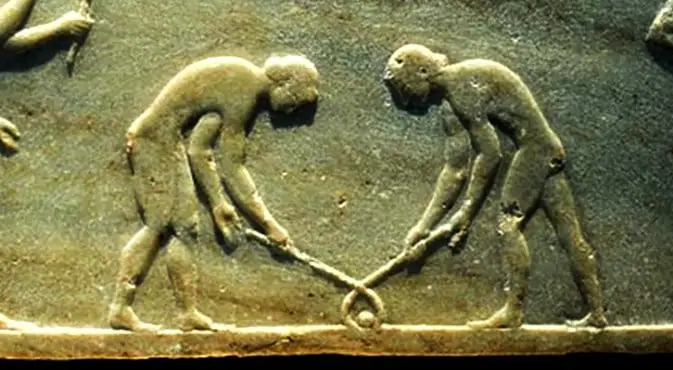Unveiling the roots of sports, this article delves into the ancient origins of ten timeless athletic pursuits, including football, gymnastics, swimming, and more. Explore the rich history and enduring legacy of these captivating sports.
10. Football
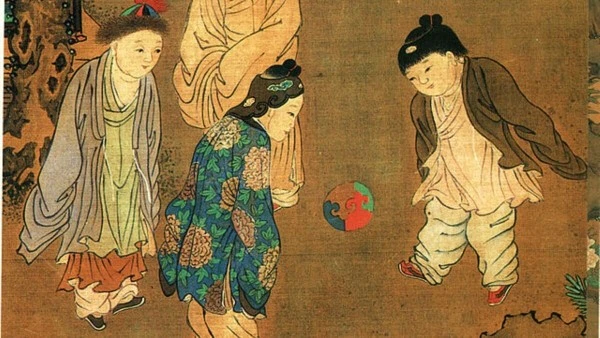
Football, one of the most beloved sports worldwide, has a rich history dating back centuries.
According to FIFA, football-related sports have been played since the early ages, between 200 and 300 BC (The world governing body of football).
The origins of football can be traced to Tsu Chu, a Chinese ball game believed to have originated in the 2nd century BC.
Tsu Chu served as a precursor to modern football, with its objective being to kick a ball through a small net.
During the Middle Ages, many other “Ball” sports were played throughout Europe, some of which were quite similar to football.
In England in the 10th century, a game known as “mob football” was played with an unlimited number of players.
Football continued to be played throughout Europe, particularly in England, where the modern rules/codes were developed when football was played in schools.
Sheffield FC, established in 1857, holds the esteemed title of the world’s oldest football club, while the FA Cup, originating in 1871, stands as the oldest football tournament globally.
9. Gymnastics
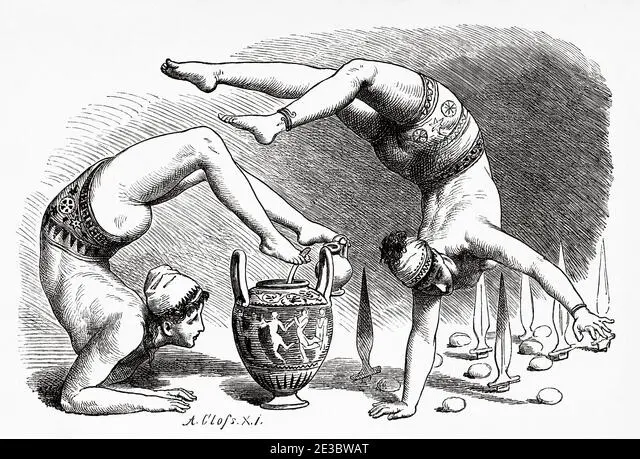
The roots of gymnastics can be traced back to ancient Greece, where it originated as a collection of training procedures primarily employed for military purposes.
In ancient Greece, these exercises were performed in the nude, excluding the implements of war.
Athens, in particular, introduced a combination of physical training and mental training.
As the Greek Hellenistic period unfolded from 323 BCE to 31 BCE, gymnastics gained popularity among ordinary citizens, ultimately finding its place in the Olympics.
Following the Roman invasion of Greece, the Roman army embraced gymnastics as a form of training, solidifying its enduring presence.
8. Swimming
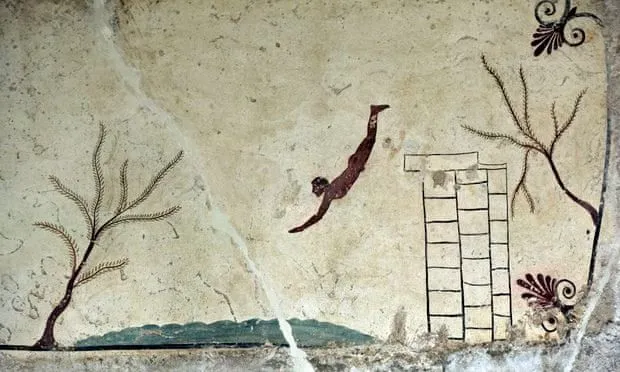
Humans have been swimming for thousands of years, and the Cave of Swimmers in the Libyan desert’s Gilf Kebir plateau contains one of the earliest portrayals of the pastime.
These ancient portrayals, although not necessarily illustrating specific swimming strokes, portray individuals engaged in activities similar to the breaststroke or doggy paddle.
However, swimming did not evolve into a competitive activity until the 1800s.
In England, the National Swimming Society organized early swimming contests, which quickly gained popularity.
Thus, England is credited with being the first nation to adopt swimming as both a recreational and competitive sport.
The sport eventually made its debut in the Olympics in 1896 as a men’s event, marking a significant milestone.
7. Boxing
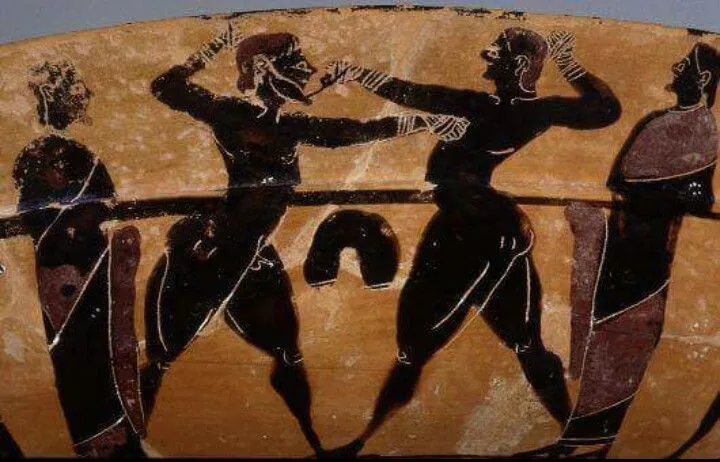
Thanks to sketches discovered in Iraq, we have proof that the earliest version of boxing dates back to roughly 3000 BC.
The first evidence of boxing gloves may be seen in a painting depicting Minoans pounding one another around 1650 BC, but even later in Ancient Greece, boxers would wrap leather thongs around their hands for protection.
Though the fundamentals of boxing haven’t changed much, there were no rounds back then, and while you were allowed to go to the body, evidence suggests that the head was by far the most important target.
Boxing was banned during the Roman gladiator period, around 393, because it was thought too harsh.
It naturally resurfaced and is now one of the most popular sports in the world, with its modern form deriving from 16th-century boxing in the United Kingdom.
6. Long Jump
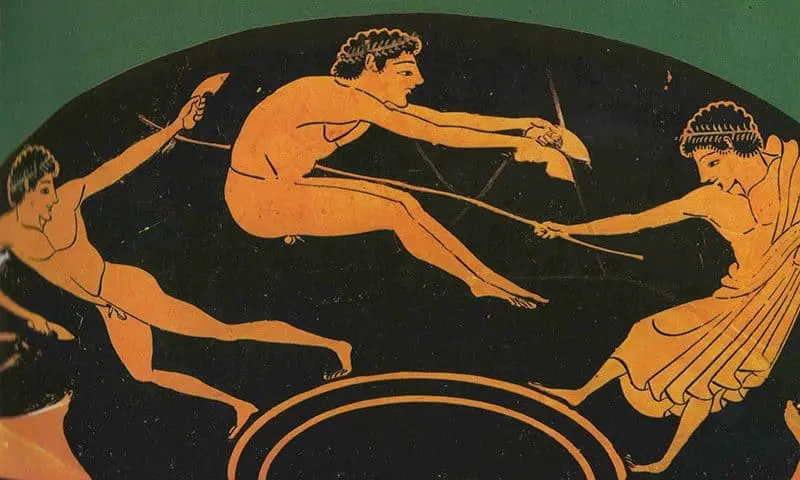
Competitors sprint down a runway and jump as far as they can into a sandpit from a wooden take-off platform in one of track and field’s two horizontal jumps.
The distance traveled from the board’s edge to the nearest indentation in the sand is then calculated.
The long jump may be traced back to the Ancient Greek Olympics.
In the initial form of the long jump, athletes would carry weights in both hands, generating momentum by swinging them forward during take-off and releasing them midway through the jump.
Since the first Games in 1896, the long jump has been a part of the Olympics in its current form.
5. Polo
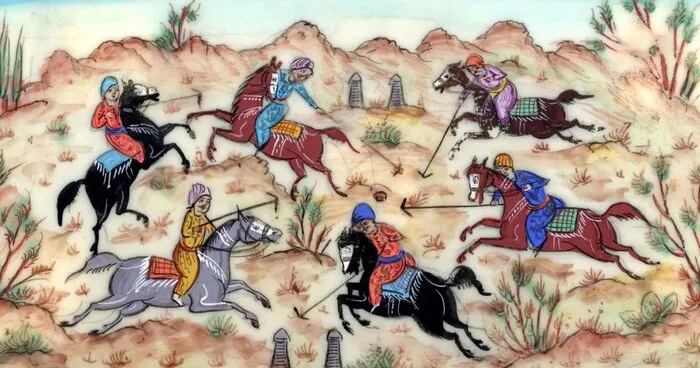
Polo is an equestrian team sport in which the goal is to score goals against an opposing team.
It was first played by emperors during the Persian Empire in Central Asia.
This sport was first documented around 316 AD.
Modern Polo game was born in India during the British Empire, with the first polo club formed in 1833.
While polo is a sport that predates recorded history, we know that it has its roots in the inspiring interaction that exists between humans and horses.
Polo has evolved into ‘The Sport of Kings’ thanks to this exceptional affinity and the unique melding of athletic talents between horse and rider.
4. Javelin Throwing
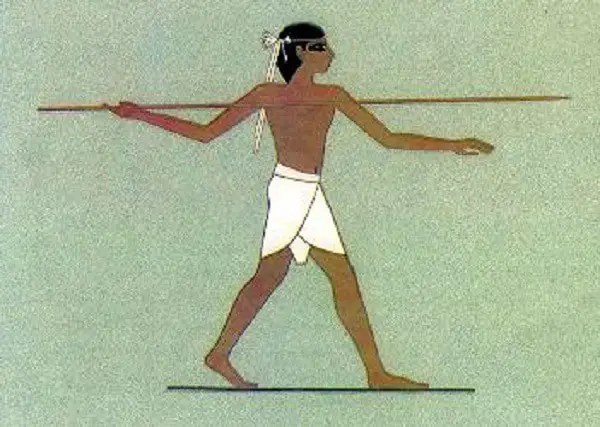
The sport of javelin throwing owes its existence to the spear’s extensive use in hunting and combat.
Participants in this track and field event aim to hurl a javelin as far as possible.
Javelin throwing made its debut in the Olympics as early as 708 BC and reappeared in the 1906 Olympics.
The javelins used during ancient Roman times were notably lighter than their contemporary counterparts.
Since 1908 for men and 1932 for women, javelin throwing has been an integral part of the modern Olympic Games, highlighting its enduring presence in the world of sports.
3. Archery
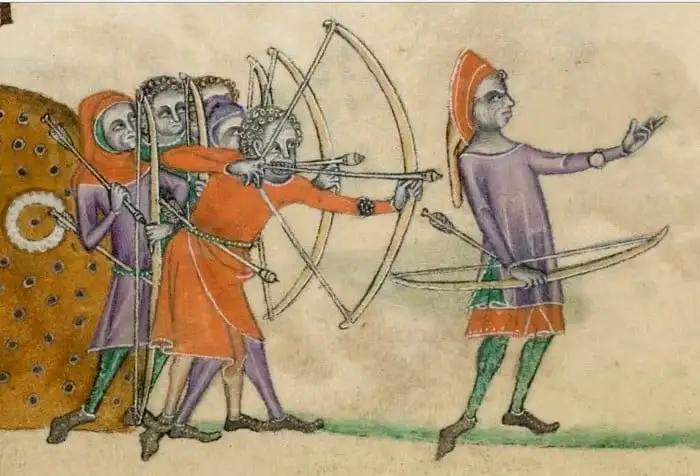
In terms of historical significance, archery is comparable to wrestling. The origins of arrows can be traced back to around 60,000-70,000 years ago.
However, research suggests that the bow and arrow as a pair was conceived circa 20,000 BC.
Initially utilized primarily for hunting and survival, archery gained competitive prominence.
There are pictures of archery in the same Cave of Swimmers in the Sahara noted above, indicating that, like swimming, archery has a long competitive history, despite its late arrival in the Olympics.
Although archery made its debut in the Olympics relatively late, first appearing in 1900, it survived the decline in weapon usage and continues to thrive as both a sport and a means of hunting.
2. Wrestling
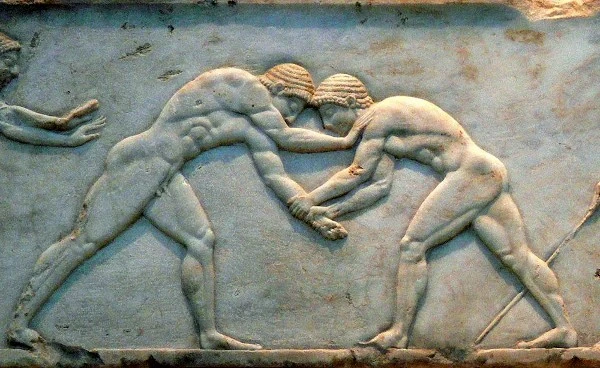
Wrestling is the world’s oldest sport.
Cave paintings in Lascaux, France, dating back 15,300 years, showcase depictions of wrestlers, solidifying the sport’s ancient roots.
Similar cave paintings have been unearthed in various regions worldwide, including Mongolia (7000 BC), Libya (6000 BC), and prehistoric caves in Japan.
Additionally, a papyrus fragment with wrestling instructions from 100 to 200 AD serves as further evidence of wrestling’s enduring popularity.
It is still one of the most popular sports in the world after all these years.
1. Running/Sprinting
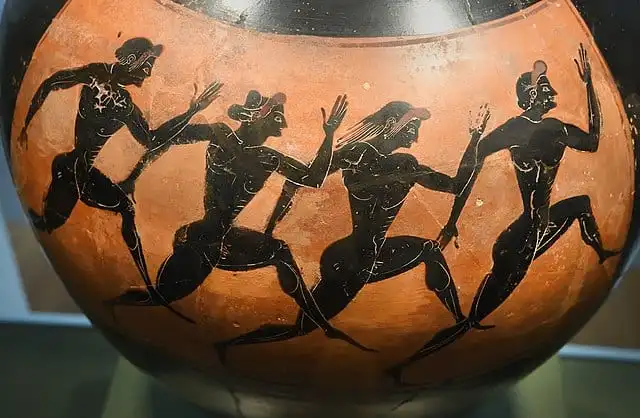
Running, often considered the oldest sport in the world, requires no equipment, making it an accessible activity for humans.
Although it’s difficult to identify exactly when running became a sport, it’s thought that humans began running around four and a half million years ago.
The Lascaux caves in France have one of the earliest depictions of sprinting, going back to the Upper Paleolithic epoch (about 15,300 years ago).
In 776 BCE, a foot race marked the opening event of the inaugural Olympics, often recognized as the starting point of running as a sport.
However, evidence suggests that one of the oldest known running events took place in Ireland as early as 1829 BCE, further highlighting the sport’s timeless appeal.
These ten sports have withstood the test of time, transcending generations and evolving into the beloved pastimes we recognize today.
Through their historical significance and enduring popularity, they exemplify the timeless nature of human athletic pursuits.
